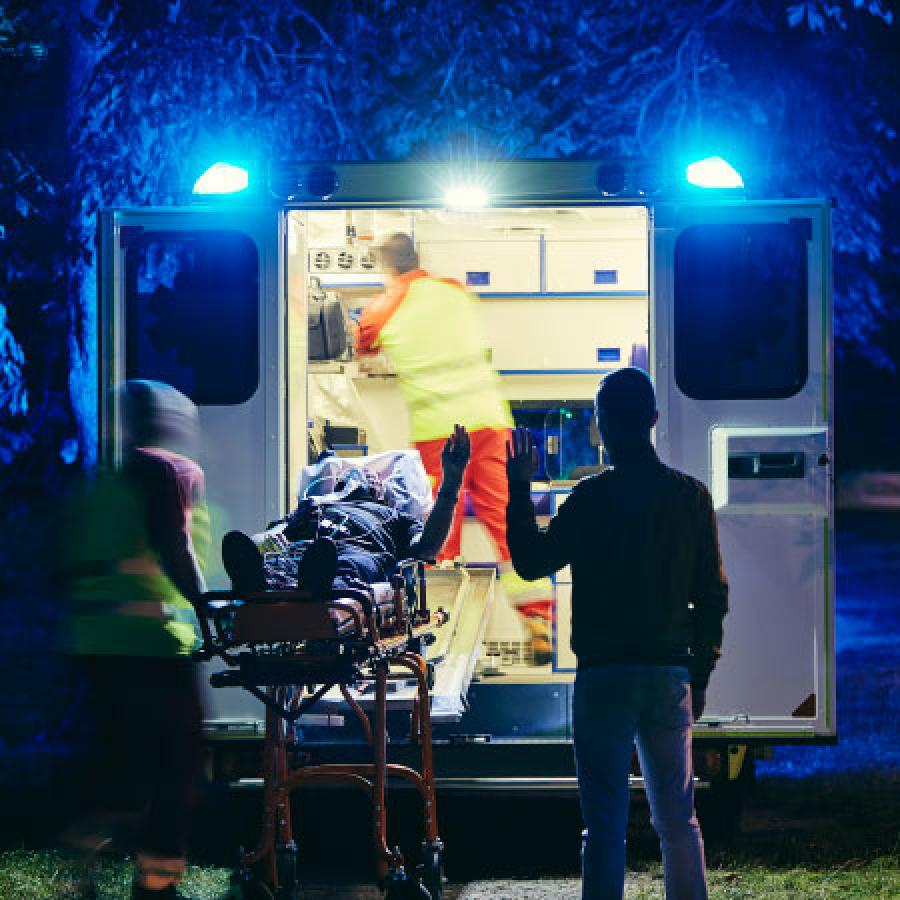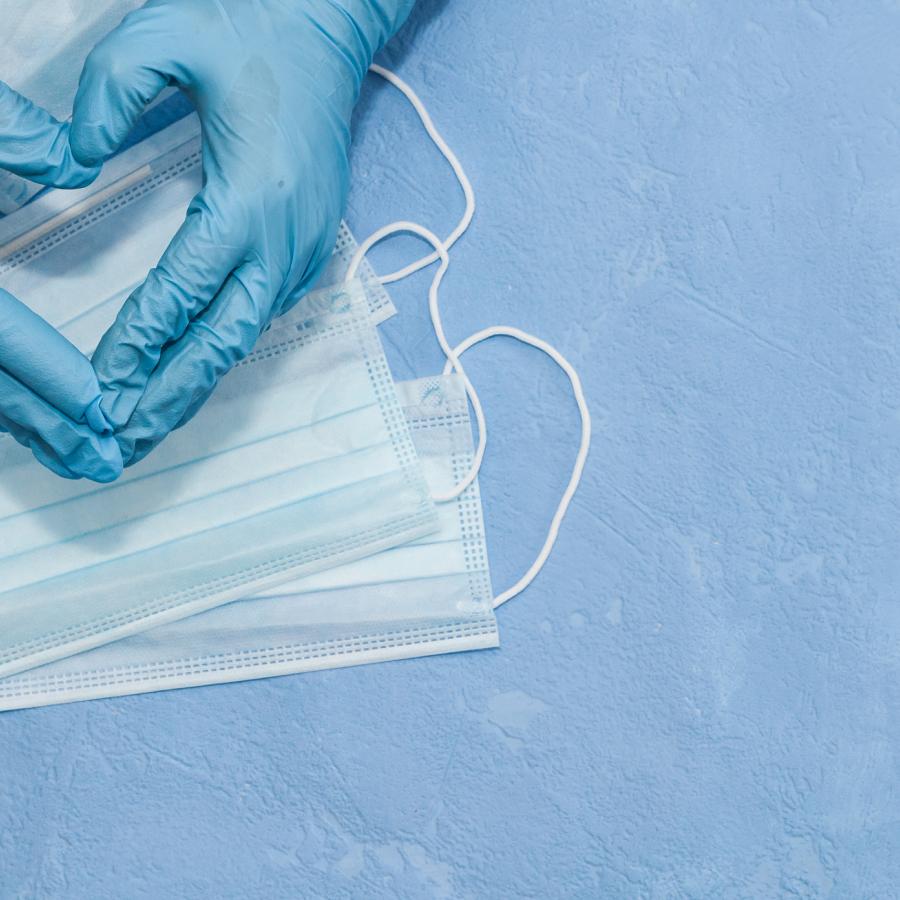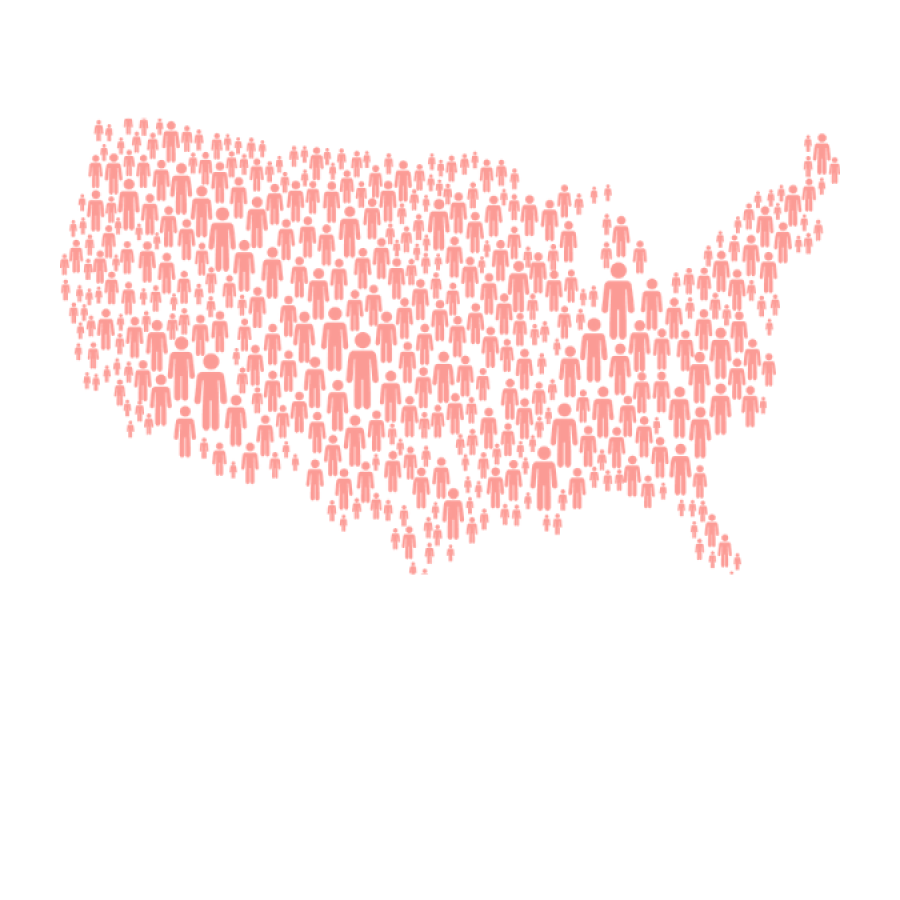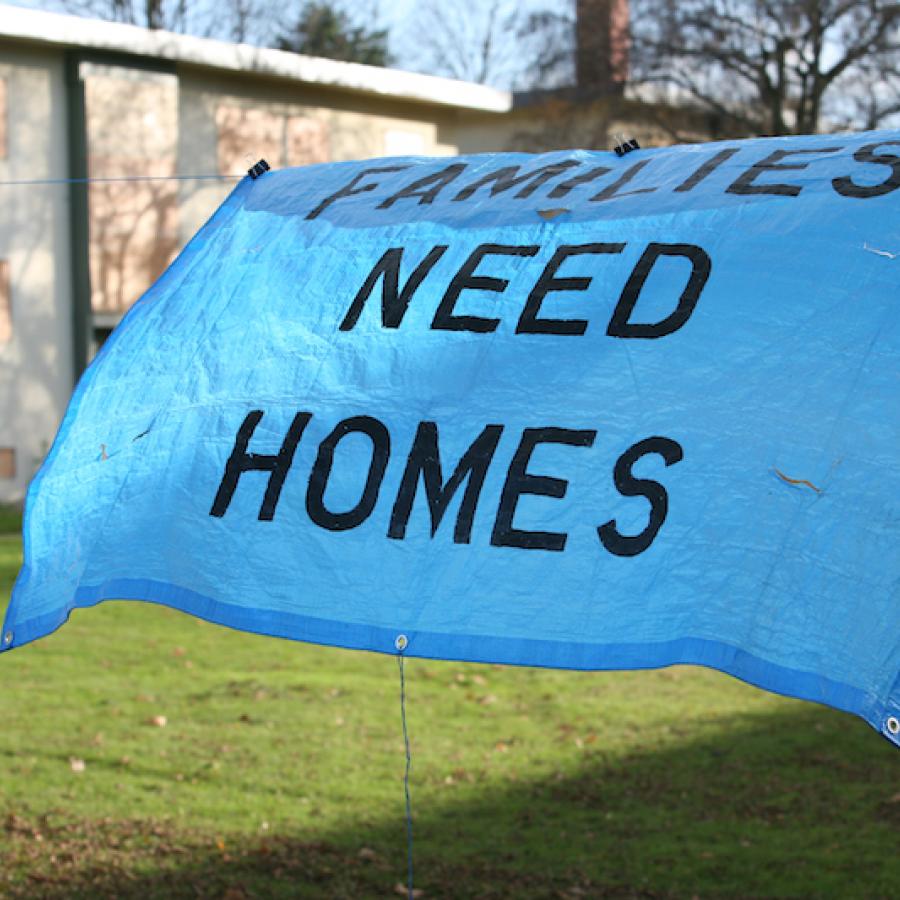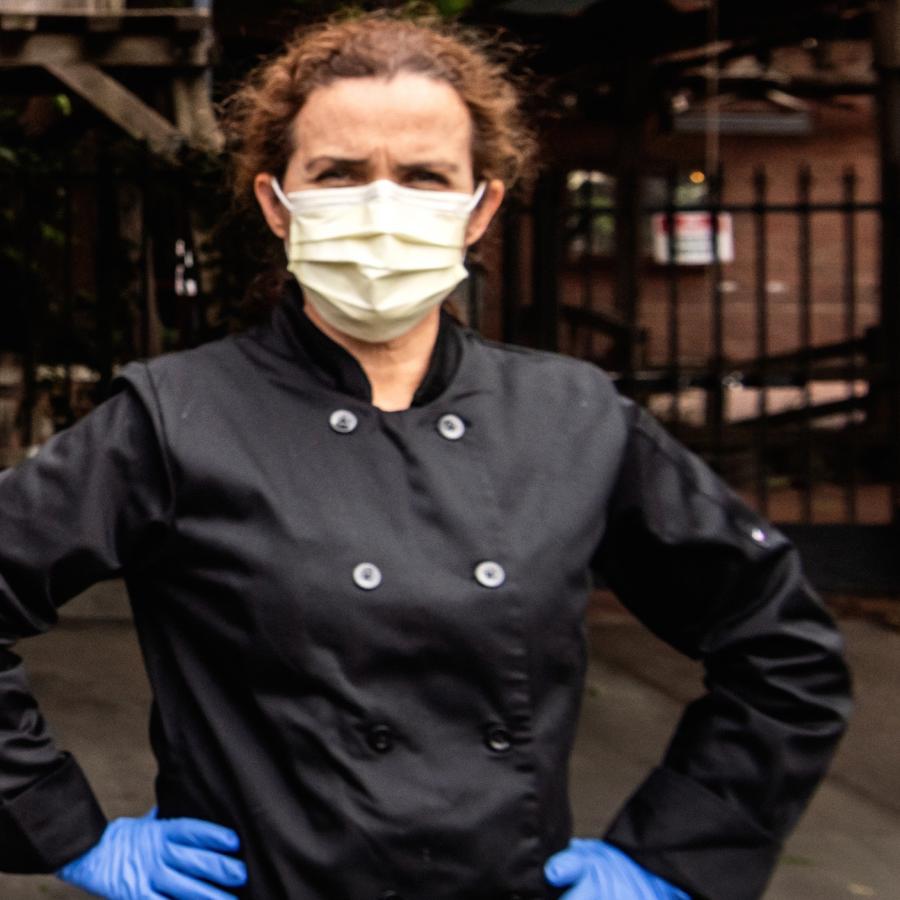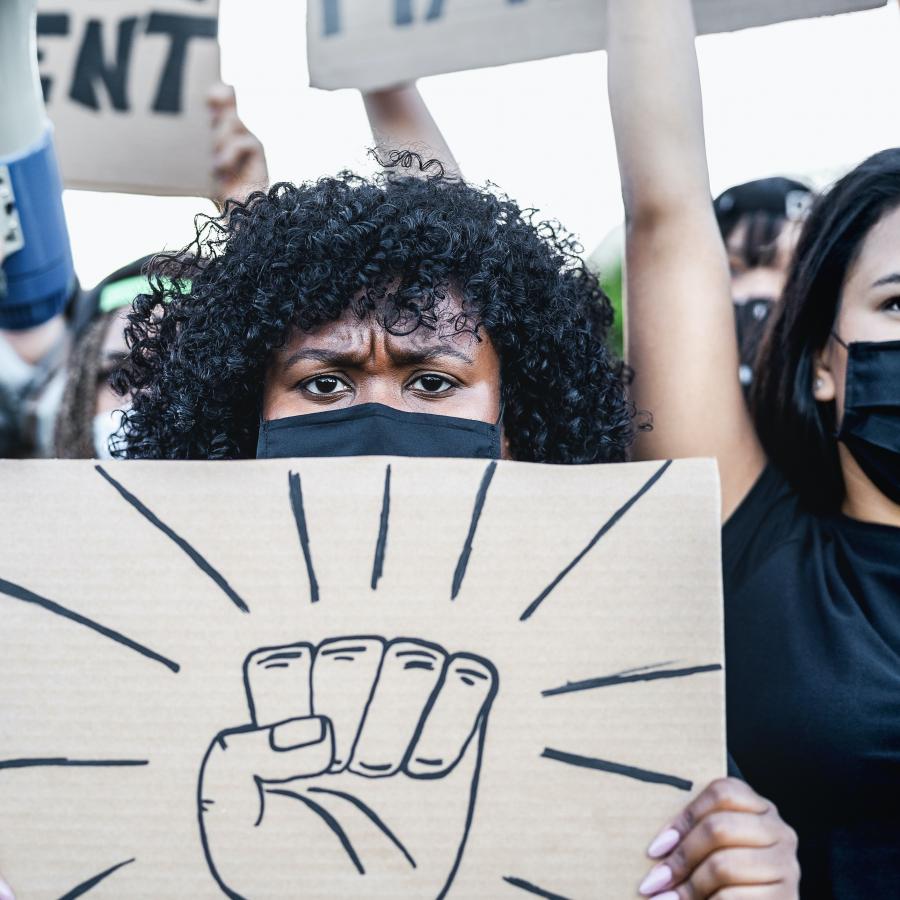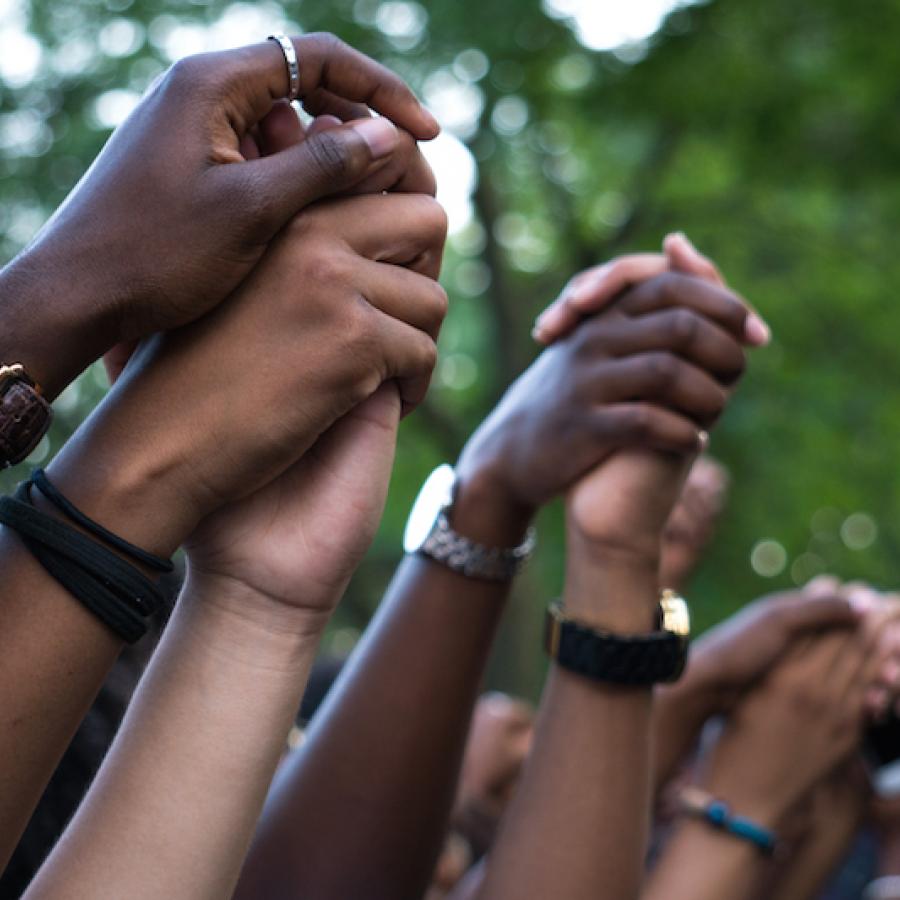The racial wealth gap grows, low-wage workers organize, and a city considers a Black stimulus package, in this week’s COVID-19 and Race Commentary.
Issue 11, June 24, 2020
To White Institutions: Join in the Work of Ending Racism
By Michael McAfee
People say this time is different. I want to believe it. It feels different to me, too, yet I don’t trust this feeling. I know that if this time is to be different, leaders within government, business, and civil society must do the one thing that has eluded Black people in the quest for racial justice — stand in institutional solidarity. It is time. It is time for large White establishment institutions to pay the debt owed to Black people by modeling what it means to listen to the streets. To understand what is being said. And to act on the demands of a people for whom justice is denied. Our youth have inherited this revolution, and they are speaking with one voice that says, “End the war on Black people!” Their agenda is this nation’s salvation. Honor them by joining in the work their ancestors are calling them to do.
Michael McAfee is President and CEO of PolicyLink.
News, Analysis, and Commentary, Curated From Around the Web
Income inequality has surged during the pandemic, making the severe racial wealth gap even worse, says a new report, White Supremacy is the Pre-existing Condition. It calls for emergency measures, including Congressional audits to determine how stimulus investments affect the wealth divide and a nationwide program of income support, and for longer term solutions to make wealth building part of economic recovery — for example, a federal job guarantee and inclusive housing and homeownership policies.
One reason for the growing racial wealth divide: the pandemic is hitting Black business owners hardest, yet they are benefiting less from government aid programs, the New York Times reports. Only 2 percent of a small business loan program in New York City went to firms in the Bronx, the borough with the highest share of Black residents, while 57 percent went to businesses in Manhattan, which is more affluent and has a higher percentage of Whites. The federal Paycheck Protection Program denies loans to many formerly incarcerated business owners, Yahoo Finance reports. Civil rights groups are suing to end these “arbitrary” and “unlawful” exclusions.
Federal relief packages, especially the CARES Act, have kept poverty from increasing even though unemployment has skyrocketed, but many key benefits are scheduled to expire in July, the New York Times writes. This will leave Latinx and Black Americans, who have the nation’s highest rates of joblessness, in a particularly precarious situation. The recession has also been especially harsh for transgender people, raising fears that an already marginalized group will be left further behind.
Philadelphia could become the first city to address the economic downturn and systemic racism with a “Black stimulus package.” It would target a half billion dollars to capital investments in low-income neighborhoods, and direct funds to job training, rent subsidies, and basic income support, WHYY reports. As Congress debates the next relief package, racial and health equity must be a cornerstone, accountability should be increased, and communities must be empowered to respond to local conditions, argues an essay in the influential medical journal JAMA.
Low-wage workers across the country are taking collective action, many for the first time, writes Elsa Rodriguez Flores, a Barnes & Noble warehouse worker in New Jersey. On the website Waging Nonviolence, she describes how hundreds of her co-workers, mostly immigrants, organized to demand basic protections — and won. Now they are supporting similar efforts across the state. “We have a precious window of opportunity to grow the power of worker-led movements in this country by reaching workers who have long been excluded from the traditional labor movement, but who are ready to fight.”
The urgency of the moment is inspiring new collaboration between unions and grassroots and worker-led organizations. Fast Company talks with seven labor leaders, including Ai-jen Poo (domestic workers), Mary Kay Henry (SEIU), Rafael Espinal (freelancers), and Greg Asbed (farmworkers), about how they’re fighting for worker safety and dignity during the pandemic and beyond.
The national outrage over the police murder of George Floyd, during a pandemic that has seen catastrophic outbreaks in US prisons and jails, is finally forcing America to reckon with its brutal system of law enforcement and mass incarceration. Stanford Social Innovation Review outlines steps for reimagining justice and describes visionary approaches that unleash the creativity of the most impacted communities to craft solutions.
An 11-story jail in Atlanta, built to hold 1,300 people for low-level crimes such as shoplifting, will be converted into a community-designed center for services and support, Fast Company reports. Plans aren’t final but services may include mental health treatment, reentry programs, GED classes, and a credit union.
For a look at what’s happening behind bars, check out ProPublica’s investigation of the Marion Correctional Institution in Ohio, with audio clips from inmates. The prison, built for 1,500 people, has had 2,000 coronavirus cases, and 76 deaths — the nation’s worst outbreak. Also from ProPublica: “I Do Not Want to Die in Here,” letters from a 7,500-inmate jail complex in Houston, one of the nation’s largest facilities, as the coronavirus spreads.
COVID-19 is killing people of color even more disproportionately than anyone knew, and killing them younger, according to new data from the US Centers for Disease Control that analyzes the racial disparities by age. Brookings breaks it down: the death rate among Black and Latinx Americans ages 45-54 is at least six times higher than the rate for Whites of that age. Black people are dying from COVID-19 at about the same rate as White people who are more than 10 years older — for example, the death rate for 50-year-old Black people is roughly the same as the rate for White people over 60, and the differential holds up every age category.
Infection rates are exploding in rural areas, which seemed to be spared as the coronavirus ripped through cities earlier this year: of the top 25 COVID-19 hot spots in recent weeks, 18 were in non-metro counties, The Conversation reports. Rural communities are susceptible because they have large senior populations and a high prevalence of chronic diseases, and many are home to prisons, military bases, and other high-risk settings.
Two-thirds of Northern Virginia’s COVID-19 deaths — 557 people — have occurred in nursing homes and assisted living facilities, an analysis by Inside NoVa finds. This has become an agonizingly familiar pattern, so it’s striking that a nursing home in West Baltimore has had no COVID-19 cases. The Maryland Baptist Aged Home, established in the segregated city of 1920, is the oldest Black-owned and operated nursing home in the state. The director told the Baltimore Sun he implemented a strict quarantine and infection control measures “right after President Trump said we had 15 cases and it would soon be down to zero.”
As drive-through coronavirus testing expands, inequities in car ownership may widen the already problematic racial gaps in testing, E&E News reports. The website cites data from the National Equity Atlas, by PolicyLink, showing that only 6.5 percent of White households nationwide lacked access to a car in 2015, compared with 19.7 percent of Black households and 12 percent of Latinx households.
“Unprecedented times call for unprecedented solutions,” Sarah Larson writes in The New Yorker. She points to the podcast Radical Imagination, hosted by Angela Glover Blackwell, as a trustworthy forum for big ideas, including housing as a human right, police abolition, and envisioning our way out of the pandemic.
ESRI, a leading maker of GIS mapping and spatial analytic tools, is teaching analysts and urban planners how to include race and ethnicity in their mapping, to advocate for equity. And in partnership with community organizations, Matthew Desmond, author of Evicted: Poverty and Profit in the American City, is developing the Pandemic Portal, to track, synthesize, and analyze the racial dimensions of COVID-19.
PolicyLink draws from articles, videos, interviews, and other sources across platforms, as well as from our network of equity leaders and activists, to bring you the latest information about COVID-19 and race. We offer this resource to:
- Provide easy access to information on the dual health and economic crises facing people of color;
- Put and keep racial equity at the center of our collective understanding of the pandemic and the policies needed for relief and recovery; and
- Lift up useful data and insights that can fuel equity advocacy and campaigns.
Please share with your networks and send your ideas and feedback. And follow us on Twitter, LinkedIn, Facebook and Instagram. #COVIDandRace
We hope you find the COVID-19 and Race Series an important tool for keeping up with news about the virus and its impact on communities we serve. As a non-profit organization, PolicyLink is honored to provide resources to support the needs of our nation's 100 million economically insecure individuals. Generous partners like you make our work possible.
Michael McAfee and Angela Glover Blackwell are grateful for the contributions of Fran Smith, Milly Hawk Daniel, Rachel Gichinga, Glenda Johnson, Jennifer Pinto, Heather Tamir, Ana Louie, Janet Dickerson, and Mark Jones to produce the COVID-19 & Race commentary.
